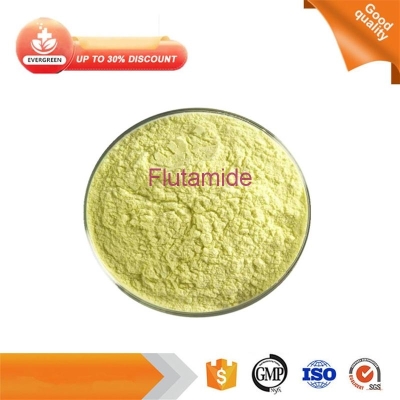-
Categories
-
Pharmaceutical Intermediates
-
Active Pharmaceutical Ingredients
-
Food Additives
- Industrial Coatings
- Agrochemicals
- Dyes and Pigments
- Surfactant
- Flavors and Fragrances
- Chemical Reagents
- Catalyst and Auxiliary
- Natural Products
- Inorganic Chemistry
-
Organic Chemistry
-
Biochemical Engineering
- Analytical Chemistry
- Cosmetic Ingredient
-
Pharmaceutical Intermediates
Promotion
ECHEMI Mall
Wholesale
Weekly Price
Exhibition
News
-
Trade Service
Gastric cancer is a malignant tumor that occurs in the mucous membrane of the stomach, and cancer cells not only grow in the stomach wall, but also metastasize to
other organs of the body through the blood and lymphatic system.
Alpha-fetoprotein (AFP)-positive gastric cancer is a relatively rare gastric cancer (AFPGC), accounting for 1.
3-15% of all gastric cancers, and the serum concentration of alpha-fetoprotein in these patients is greater than 20 ng/ml, or immunohistochemical staining is positive
.
Compared with other types of gastric cancer, alpha-fetoprotein-positive gastric cancer has a poorer prognosis and tends to metastasize
to the liver and lymph nodes.
Current treatments include surgery, chemotherapy, targeted therapy, and immunotherapy
.
The indicators that can be referred to in immunotherapy are PD-L1 protein expression, microsatellite instability, and tumor mutation burden (TMB).
At present, the first-line treatment of gastric cancer generally uses the PD-1 inhibitor nivolumab combined with chemotherapy, and the domestic PD-1 inhibitor tislelizumab has not been approved for the treatment of gastric cancer for the time
being.
In the following treatment case, a patient with gastric cancer who is positive for alpha-fetoprotein, under the condition of microsatellite stability, achieved all the visible lesions disappeared and achieved complete remission by using the PD-1 inhibitor tislelizumab combined with the anti-angiogenic drug apatinib
.
Patients with gastric cancer with multiple metastases
In August 2019, a 69-year-old man with type 2 diabetes
was admitted to hospital with epigastric pain.
The carcinoembryonic antigen CEA reached 117.
2 ng/mL (normal reference value 5 ng/mL), and alpha-fetoprotein reached 131.
6 ng/mL (normal reference value 7 ng/mL).
On 29 August 2019, enhanced CT scans of the abdomen and pelvis showed multiple lymphadenopathy in the stomach, perigastric perigastric, mesenteric mobile area, and retroperitoneal area
.
Endoscopy showed antral ulceration, gastroscopy pathology showed antral adenocarcinoma, some ring cell carcinoma differentiation, tumor was diagnosed as alpha-fetoprotein-positive gastric cancer
.
Immunohistochemistry showed no genetic mismatch repair defects (i.
e.
, microsatellites are stable).
PD-L1 expression is not strongly positive
.
Figure 1.
The corresponding test results at the time of diagnosis
As shown in the figure above, the patient underwent imaging of PET-CT and found that the stomach wall in the antral area was unevenly thickened, and there was a relatively high tracer absorption value, so multiple metastases were taken into
account.
First stage of treatment: chemotherapy
The patient's first treatment was chemotherapy with a drug combination of oxaliplatin plus S-1, and the patient was clinically assessed as stable
after four cycles of standard chemotherapy.
The fifth treatment cycle began with the addition of albumin paclitaxel and oxaliplatin, but was later discontinued due to anemia
.
From 12 January 2020 to 26 February 2020, the patient underwent sixth, seventh and eighth cycles of chemotherapy with albumin-bound paclitaxel and S-1
.
In the eighth treatment cycle, the patient's condition progressed, manifested as lymphadenopathy, the lesion began to metastasize to the renal pelvis, ureters, etc.
, and the tumor markers carcinoembryonic antigen and alpha-fetoprotein also increased
.
Phase II treatment: combination of immunotherapy and antiangiogenic targeted drugs
On March 23, 2020, due to the limited effect of chemotherapy therapy, the patient started the PD-1 inhibitor tislelizumab in combination with the antiangiogenic targeted drug apatinib
.
After three cycles of treatment, some metastases began to shrink.
Carcinoembryonic antigen and alpha-fetoprotein tumor markers were significantly reduced, and clinical assessment was a partial response
.
Figure 2.
Multiple metastatic tumor lesions eventually disappear
In December 2020, the patient's hydronephrosis disappeared completely, and in April 2021, endoscopy revealed that both gastric tumors and intra-abdominal metastases had disappeared, and the patient achieved complete remission
.
So far, patients have achieved 24-month progression-free survival through this combination regimen, and their quality of life has improved
significantly.
Figure 3.
Changes in tumor markers
revelation
In this treatment case, the patient progressed
after several courses of chemotherapy.
Later, the PD-1 inhibitor tislelizumab combined with apatinib was used to achieve complete remission
.
Although chemotherapy has a limited effect during treatment, it may play a beneficial role
in later treatment.
Chemotherapy breaks up the tumor lesions and has more tumor cell antigens to make the later treatment work
quickly.
Although chemotherapy can lead to a decrease in the patient's constitution and immunity, in general, it is still recommended not to give up first-line standard chemotherapy
easily.
If the patient's first-line treatment, or other treatment methods, lead to disease progression and cannot be controlled, we should also actively speculate, learn more or try other treatment methods, and seize more opportunities
.
In addition, to monitor the recurrence of gastric cancer or suspected symptoms related to early gastric cancer, a more effective detection technology is methylation of related genes, which is more sensitive and less
expensive than blood circulating tumor DNA (ctDNA).
Click on the video to learn more
.
Welcome to join the cancer patient exchange group to learn and discuss more treatment strategies or solutions
.
Pay attention to the degree of cancer, take every step of cancer prevention and anti-cancer!
References:
Jinyu Xiang, et al.
, Complete remission of alpha-fetoprotein-producing gastric cancer by combined tislelizumab-apatinib treatment of a patient with proficient mismatch repair: a case report , World Journal of Surgical Oncology (2022) 20:289
Click below to learn more about our clinical trial programs







